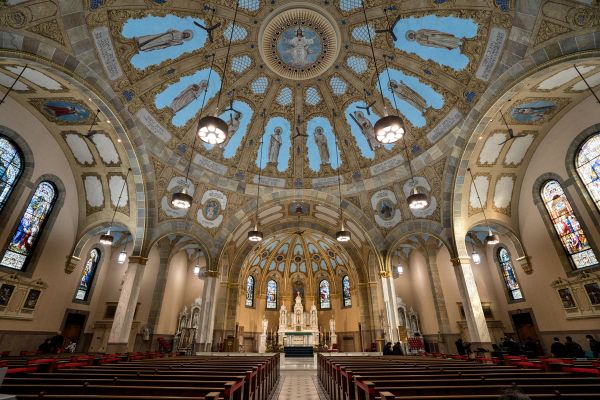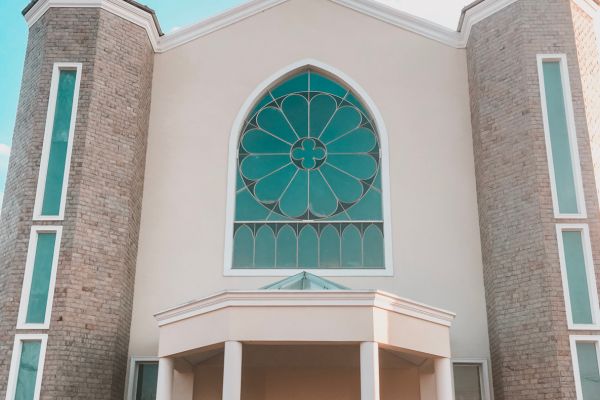Churches and religious organizations play a vital role in communities around the world, providing spiritual guidance, social support, and often serving as cornerstones of local culture. As these institutions grow and evolve, they frequently face the need for expansion, renovation, or relocation. This is where commercial church loans come into play, offering religious organizations the financial means to achieve their goals and better serve their congregations.
In this comprehensive guide, we’ll explore the world of commercial church loans, discussing their purpose, types, benefits, and potential challenges. Whether you’re a church leader considering a loan for your organization or simply interested in understanding this unique financial product, this article will provide valuable insights and practical information.
Understanding Commercial Church Loans
What Are Commercial Church Loans?
Commercial church loans are specialized financial products designed to meet the unique needs of religious organizations. These loans provide churches and other faith-based institutions with the capital necessary to fund various projects, including:
- Construction of new buildings
- Expansion of existing facilities
- Renovation and repairs
- Purchase of land or property
- Refinancing existing debt
- Acquisition of equipment and technology
Unlike traditional commercial loans, church loans take into account the specific financial structure and income sources of religious organizations, which often rely on donations and tithes rather than traditional revenue streams.
Types of Commercial Church Loans
There are several types of commercial church loans available, each tailored to different needs and circumstances:
- Construction Loans: These loans finance the building of new church facilities or major expansions. They typically involve a draw schedule, where funds are released in stages as construction progresses.
- Mortgage Loans: Similar to residential mortgages, these loans are used to purchase existing properties or refinance current mortgages.
- Line of Credit: This flexible option allows churches to borrow funds as needed, up to a predetermined limit, ideal for managing cash flow or funding smaller projects.
- Equipment Loans: These loans finance the purchase of necessary equipment, such as sound systems, computers, or vehicles.
- Bridge Loans: Short-term loans that “bridge” the gap between immediate financial needs and long-term financing solutions.
- Refinancing Loans: These allow churches to restructure existing debt, potentially lowering interest rates or extending repayment terms.
The Benefits of Commercial Church Loans
Commercial church loans offer several advantages for religious organizations:
1. Expansion and Growth
Loans provide the necessary capital for churches to expand their facilities, accommodating growing congregations and expanding ministries. This growth can lead to increased impact within the community and enhanced ability to fulfill the church’s mission.
2. Improved Facilities
With loan funding, churches can upgrade their buildings, enhancing comfort, safety, and accessibility for congregants. This can include improvements like better heating and cooling systems, updated technology, or renovations to create more welcoming spaces.
3. Financial Flexibility
Commercial church loans offer financial flexibility, allowing religious organizations to manage large expenses without depleting their savings or relying solely on donations. This can be particularly beneficial for unexpected repairs or time-sensitive opportunities.
4. Customized Terms
Many lenders specializing in church loans offer terms tailored to the unique financial situations of religious organizations. This may include consideration of seasonal donation patterns or flexible repayment schedules.
5. Potential Tax Benefits
While churches are typically tax-exempt, there may be certain tax advantages associated with owning property or making improvements. It’s important to consult with a tax professional to understand the specific implications for your organization.
Challenges and Considerations
While commercial church loans can provide significant benefits, there are also challenges and considerations to keep in mind:
1. Repayment Responsibility
Taking on debt means committing to regular repayments. Churches must carefully consider their ability to meet these obligations, especially given the potential fluctuations in donations and other income sources.
2. Risk of Default
If a church is unable to repay the loan, it may risk losing the property or assets used as collateral. This can have severe consequences for the organization and its ability to serve the community.
3. Impact on Church Finances
Loan repayments can represent a significant portion of a church’s budget, potentially limiting funds available for other ministries or programs.
4. Congregational Approval
Many churches require approval from their congregation or governing body before taking on significant debt. This process can be time-consuming and may lead to disagreements within the church community.
5. Regulatory Compliance
Churches must ensure they comply with all relevant regulations when taking out a loan, including any restrictions related to their tax-exempt status.
The Application Process for Commercial Church Loans
Securing a commercial church loan involves several steps:
1. Financial Assessment
Before applying, conduct a thorough assessment of your church’s financial health, including income, expenses, and existing debts.
2. Project Planning
Clearly define the purpose of the loan and create a detailed plan for how the funds will be used.
3. Lender Research
Identify lenders specializing in church loans, comparing their terms, interest rates, and reputation.
4. Documentation Preparation
Gather necessary documents, which may include:
- Financial statements
- Tax returns
- Membership and attendance records
- Project plans and cost estimates
- Church constitution and bylaws
5. Loan Application
Submit a formal loan application, providing all required information and documentation.
6. Underwriting Process
The lender will review your application, assessing the church’s creditworthiness and the viability of the proposed project.
7. Loan Approval and Closing
If approved, review the loan terms carefully before signing the agreement and closing the loan.
Choosing the Right Lender for Your Church Loan
Selecting the right lender is crucial for a successful church loan experience. Consider the following factors:
1. Experience with Church Loans
Look for lenders with a track record of working with religious organizations and understanding their unique financial structures.
2. Competitive Rates and Terms
Compare interest rates, repayment terms, and fees among different lenders to find the most favorable options.
3. Flexibility
Seek lenders willing to work with your church’s specific situation and offer flexible terms if needed.
4. Reputation and Reviews
Research the lender’s reputation, reading reviews from other churches or religious organizations that have worked with them.
5. Additional Services
Some lenders offer additional services, such as financial consulting or project management assistance, which can be valuable for churches undertaking large projects.
Best Practices for Managing Church Loans
Once you’ve secured a commercial church loan, follow these best practices to ensure successful management:
1. Create a Dedicated Repayment Fund
Set aside a portion of income specifically for loan repayments to ensure timely payments.
2. Maintain Open Communication
Keep your congregation informed about the loan, its purpose, and the repayment progress to maintain transparency and trust.
3. Develop a Contingency Plan
Prepare for potential financial challenges by creating a contingency plan that outlines steps to take if repayment becomes difficult.
4. Regular Financial Reviews
Conduct regular reviews of your church’s finances to ensure the loan remains manageable and to identify any potential issues early.
5. Seek Professional Advice
Consult with financial advisors or accountants specializing in non-profit organizations for ongoing guidance and support.
The Future of Commercial Church Loans
As the religious landscape evolves, so too does the world of commercial church loans. Several trends are shaping the future of this financial product:
1. Increased Digital Services
Many lenders are offering online applications, digital document submission, and virtual consultations, making the loan process more efficient and accessible.
2. Focus on Sustainability
Some lenders are beginning to offer specialized loans or favorable terms for eco-friendly church projects, such as solar panel installations or energy-efficient renovations.
3. Alternative Funding Models
Crowdfunding and peer-to-peer lending platforms are emerging as alternative sources of funding for churches, potentially complementing or competing with traditional church loans.
4. Enhanced Risk Assessment Tools
Lenders are developing more sophisticated tools to assess the financial health and stability of religious organizations, potentially leading to more accurate risk assessments and better loan terms for qualifying churches.
Conclusion
Commercial church loans play a crucial role in helping religious organizations grow, improve their facilities, and better serve their communities. While these loans offer numerous benefits, they also come with responsibilities and potential challenges. By understanding the types of loans available, carefully considering their financial situation, and choosing the right lender, churches can leverage these financial tools to achieve their goals and further their mission.
As you consider a commercial church loan for your organization, remember to approach the process with careful planning, open communication with your congregation, and a clear vision for how the loan will support your church’s growth and impact. With the right approach, a commercial church loan can be a powerful tool for building a stronger, more vibrant religious community.
Frequently Asked Questions
- Q: How much can a church typically borrow through a commercial church loan? A: The loan amount varies widely depending on factors such as the church’s income, assets, and creditworthiness. Some lenders offer loans ranging from $50,000 to several million dollars.
- Q: What interest rates can churches expect on commercial loans? A: Interest rates vary based on market conditions, the church’s financial health, and the loan type. Generally, rates may range from 4% to 8%, but can be higher or lower.
- Q: Are there government-backed loans available for churches? A: While churches are typically not eligible for SBA loans due to their religious nature, some government programs may be available for specific purposes, such as historic preservation or community development.
- Q: Can a new church qualify for a commercial loan? A: New churches may find it more challenging to qualify for traditional loans due to limited financial history. However, some lenders specialize in working with new religious organizations and may offer alternative financing options.
- Q: How long are the typical repayment terms for church loans? A: Repayment terms can range from 5 to 30 years, depending on the loan type and amount. Mortgage loans often have longer terms, while equipment loans may have shorter repayment periods.
- Q: What happens if a church defaults on its loan? A: If a church defaults, the lender may foreclose on the property used as collateral. However, many lenders work with churches to find alternative solutions before resorting to foreclosure.
- Q: Are there restrictions on how church loan funds can be used? A: Most lenders require that loan funds be used for purposes related to the church’s operations or growth. Using funds for unrelated business activities may violate loan terms or jeopardize the church’s tax-exempt status.
- Q: Can a church refinance an existing loan? A: Yes, many churches refinance existing loans to secure better interest rates, extend repayment terms, or consolidate multiple debts into a single loan.
- Q: Do churches need collateral to secure a commercial loan? A: Most commercial church loans require collateral, typically in the form of real estate owned by the church. Some lenders may consider other assets or offer unsecured loans in certain situations.
- Q: How does a church’s tax-exempt status affect its ability to obtain a loan? A: While tax-exempt status doesn’t prevent a church from obtaining a loan, it may affect how lenders assess the organization’s financial stability. Churches should work with lenders familiar with non-profit finances.






